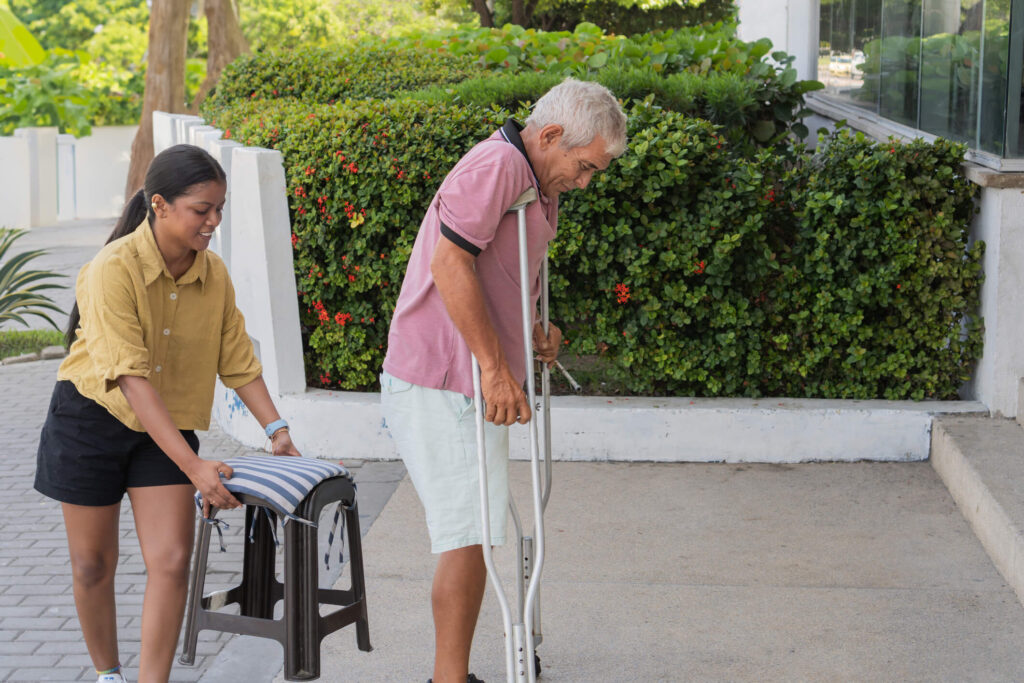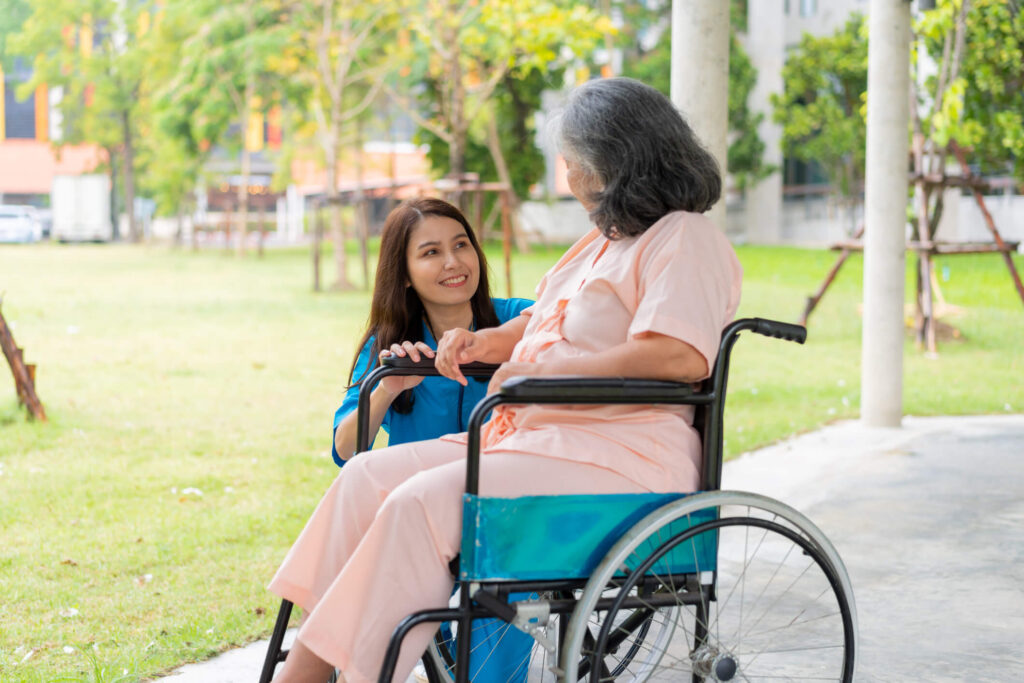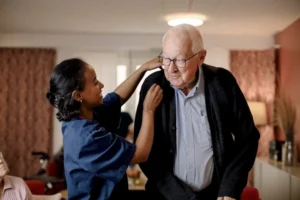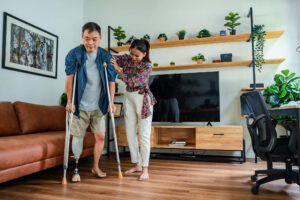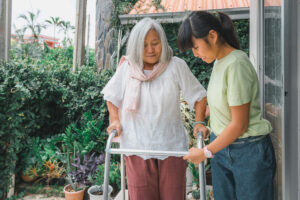Top 10 Essential Skills Every Professional Caregiver Should Have
Caregiving is more than just a job; it’s a commitment to providing comfort, assistance, and companionship to those who need it most. As Malaysia’s elderly population grows, the demand for skilled, compassionate caregivers continues to rise. Whether you’re an aspiring caregiver or an experienced professional, honing these top 10 essential skills will help you provide the highest level of care.
1. Empathy and Compassion
Empathy is at the core of caregiving. To provide effective care, a caregiver must genuinely understand and relate to the feelings of their clients. Compassion helps caregivers connect with clients on a personal level, fostering trust and creating a supportive environment. When caregivers show empathy, clients feel valued and respected, which can greatly enhance their overall well-being.
2. Communication Skills
Strong communication skills are crucial for caregivers, who often serve as the primary point of contact between clients, families, and medical professionals. Caregivers need to:
- Listen actively to clients’ needs and concerns.
- Clearly convey information to family members and healthcare providers.
- Interpret and respond to non-verbal cues, especially for clients with cognitive impairments.
Good communication ensures smooth coordination and helps caregivers respond effectively to clients’ needs.
3. Patience
Caregiving often involves repetitive tasks and requires helping clients at a slower pace. Some clients may struggle with confusion, frustration, or difficulty expressing themselves. Patience allows caregivers to remain calm and supportive, helping clients feel safe and understood, even during challenging moments.
4. Physical Stamina and Strength
Caregivers perform tasks that require physical strength, such as helping clients with mobility, lifting, and repositioning. Physical stamina is essential for avoiding injuries and providing continuous support. Regular exercise and proper lifting techniques are important for caregivers to prevent strain and ensure they’re ready for physically demanding tasks.
5. Attention to Detail
Detail-oriented caregivers can spot small changes in a client’s behavior, health, or mood, which may indicate emerging health issues. This skill helps in:
- Tracking medications and dietary needs accurately.
- Monitoring physical and emotional well-being.
- Noticing any signs of discomfort or potential health risks.
Attention to detail is vital for early intervention and helps caregivers provide proactive, comprehensive care.
6. Time Management and Organization
Caregivers juggle multiple responsibilities, from medication schedules to daily activities. Strong time management and organizational skills ensure that each task is completed efficiently and on time. This also allows caregivers to set aside moments for rest or quality time with clients, improving the caregiving experience for both parties.
7. Problem-Solving Skills
Every day, caregivers face new challenges, from unexpected health issues to behavioral changes in clients. Problem-solving skills enable caregivers to think on their feet and respond to issues calmly and effectively. Being resourceful helps caregivers make quick, well-informed decisions that can improve client safety and comfort.
8. Medical Knowledge and First Aid Skills
While caregivers aren’t required to be medical experts, a foundational understanding of medical conditions, symptoms, and first aid is critical. Basic medical knowledge allows caregivers to recognize health warning signs and perform essential tasks, such as:
- Taking vital signs.
- Administering basic first aid.
- Recognizing emergency symptoms and knowing when to seek medical help.
First aid skills ensure that caregivers can respond promptly in emergencies, ensuring the safety and well-being of their clients.
9. Adaptability
Every client is unique, with distinct needs and preferences. Adaptability helps caregivers adjust their approach to each individual, making the caregiving experience more personalized and effective. Flexibility also enables caregivers to handle changes in clients’ health or routines without stress, fostering a positive environment.
10. Respect and Cultural Sensitivity
In a multicultural society like Malaysia, caregivers often work with clients from diverse backgrounds. Respecting cultural practices and traditions is key to building trust and rapport with clients and their families. Cultural sensitivity also helps caregivers better understand their clients’ preferences and provide care that aligns with their beliefs, making the caregiving experience more comfortable and respectful.
Conclusion
Caregiving requires a unique blend of skills and qualities. By cultivating these essential skills, caregivers can provide compassionate, effective care that meets their clients’ physical and emotional needs. Whether you’re just starting out or looking to improve, these skills will help you become a more proficient and empathetic caregiver, ultimately enhancing the lives of those you care for.
Caregiving isn’t just about tending to daily tasks – it’s about bringing comfort, dignity, and companionship to someone’s life. Mastering these skills is a step toward making a positive, lasting impact on the lives of your clients.
Ready to strengthen your caregiving skills? If you’re interested in comprehensive caregiver training and certification, visit Genesis Training Academy for more information on our programs designed to equip you with these essential skills and more.
